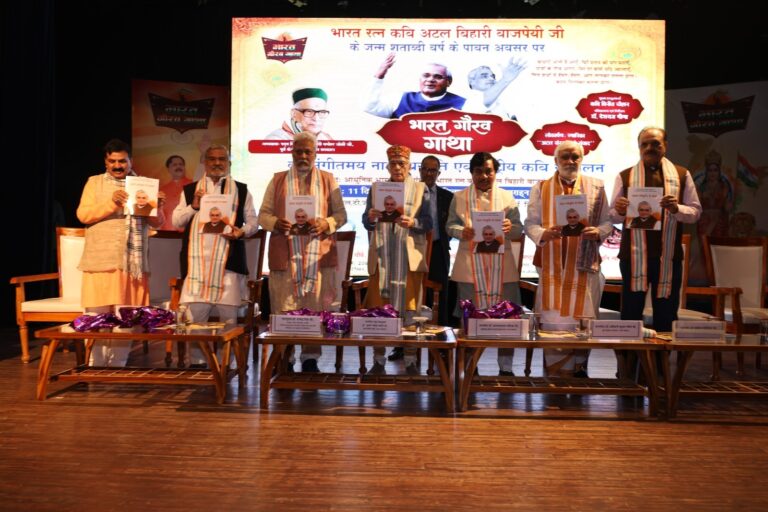
Spirituality: Overcoming neediness
By Swami Viditatmananda Saraswati*
Na Me Bhaktaḥ Praṇaśyati – 11
Neediness prompts us to fulfil our own agenda. Because we have our own needs and requirements, we have some expectations in mind whenever we relate to other people. Being needy, our neediness always prompts us to consider how to fulfil our needs in every interaction with the world. Therefore, when anybody comes to us, the immediate thought in our minds is, “How can I use this person to fulfil my agenda?” In contrast, Pujya Swamiji used to say that when someone came before him, his first thought was, “How can I be useful to this person?” That is a big thing. When would you have this attitude of being useful? Only when you do not have any need.
How can you overcome this neediness? Even if you are a needy person, you can tell your mind, “This need is illegitimate. I am a complete being; therefore need itself is illegitimate, born of ignorance. O mind! Do not justify your need. Do not function from the platform of need, because need is a product of ignorance. I am a complete being and therefore need is a product of ignorance.” The idea is that gradually you stop justifying your needs and lack and want, and seek to function instead from the platform of the one who is free from needs.
Fake it ’til you make it. “Right now I am needy, but I know that my neediness is caused by not knowing my true nature. If I keep on satisfying my needs I will never become free from needs, because I am perpetuating ignorance. Satisfying needs is nothing but perpetuating ego and ignorance. I do not want to perpetuate my ignorance; therefore I do not justify my needs.” Selfless action means egoless action. A selfless action is not performed to fulfil the agenda of the ego but is performed to fulfil the agenda of the Lord. That is selfless action.
Grow out of neediness by trusting īśvara
It does not happen that we give up ego right away, because we are too insecure and too afraid of what will happen. The Lord says he will take care of me, but who knows if he will take care of me or not? All promises are given, but we lack trust. Bhakti, surrender, offering, requires trust. It requires śraddhā, faith that īśvara is my well-wisher, that he has no agenda of his own, and that he is pūrṇa. Puruṣa means pūrṇa, complete, whole, having no lack, no want, no need, and no demand. Puruṣa, who is īśvara, does not have any need; he does not make any demands and does not relate to me as a needy being.
You attempt to grow out of the neediness so that you act to fulfil the need of īśvara rather than your personal need. That is called bhakti, devotion. That is called surrender. That requires you to have śraddhā, trust in the words of īśvara. The Gita becomes a pramāṇa, a means of knowledge for developing trust. Lord Krishna says, “suhṛdaṁ sarvabhūtānām, I am the well-wisher of all beings;” and “ahaṁ tvā sarvapāpebhyaḥ mokṣayiṣyāmi, I will release you from all pāpa, sins; mā śucaḥ, don’t worry; do not grieve.”
The mind is insecure and does not want to let go. It wants to hold on to everything and wants to grab more and more. But the words from Lord Krishna tell me, “Don’t worry, “yogakṣemaṁ vahāmyaham, I take care of yoga and kṣema.” Yoga here means giving you what you don’t have. Kṣema means protecting what you have. The Lord takes care of yoga and kṣema. He gives you what you need. He protects what you have. You don’t have to worry about that. The bhakta realizes that ignorance gives rise to the ego and all these insecurities, and gradually offers everything to the Lord.
Surrendering to the Lord is a process. Offering yourself is the process. It does not happen overnight because your insecure ego does not let it happen. What you are letting go of is your insecurity, which arises as rāga-dveṣa. Rāga and dveṣa are nothing but manifestations of insecurity, which is your ego. Ego is too afraid and too insecure to let go. Therefore, you must let go little by little.
…to continue
*Swami Viditatmananda Saraswati has been teaching Vedānta Prasthānatrayī and Prakaraṇagranthas for the last 40 years in Ahmedabad, Gujarat. Throughout the year, he conducts daily Vedānta discourses, accompanied by retreats, and Jñāna Yajñas on Vedānta in different cities in India and foreign countries.







Such content and knowledge is the exact need in today s times🕉️🙏